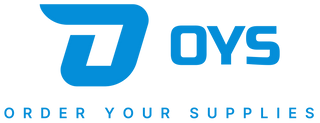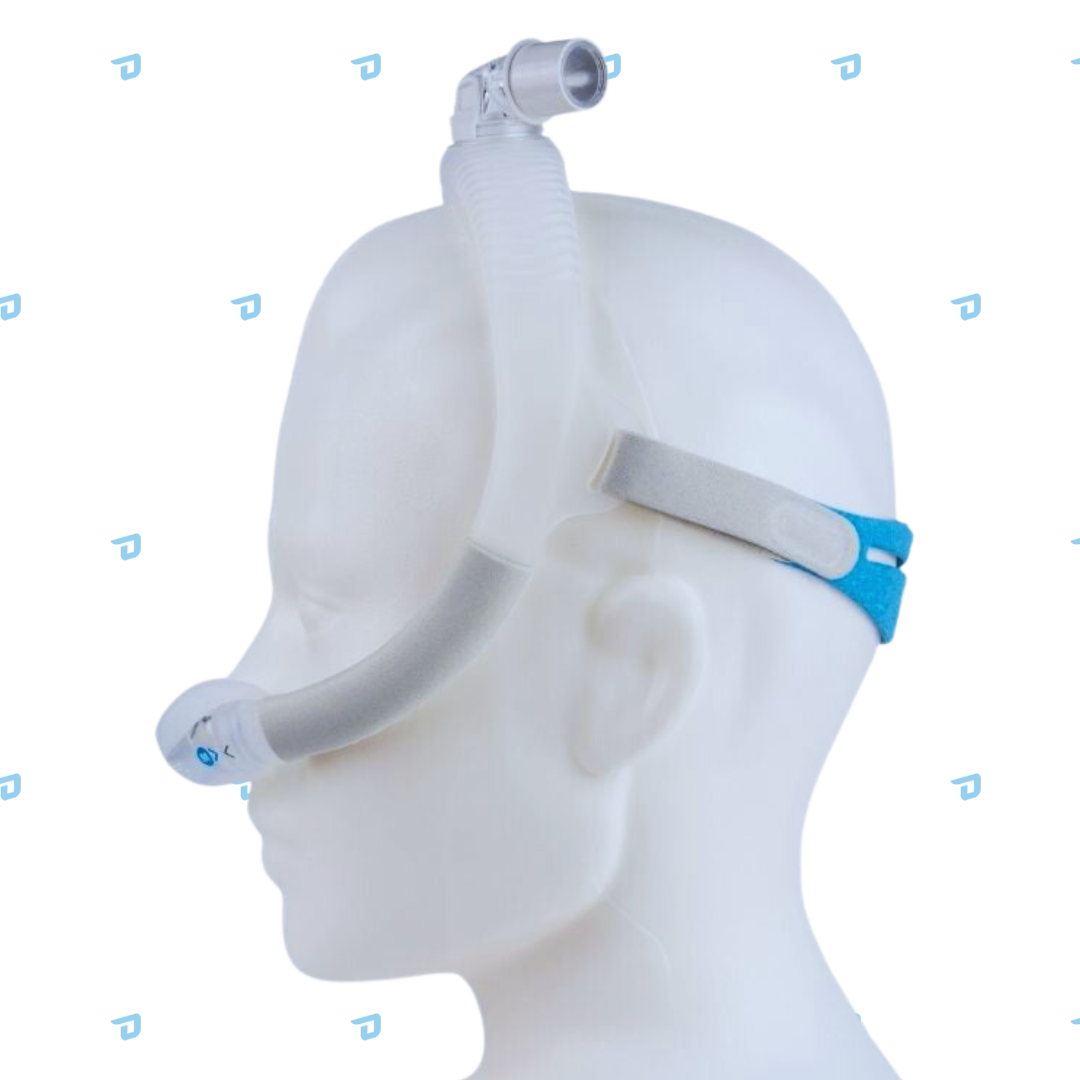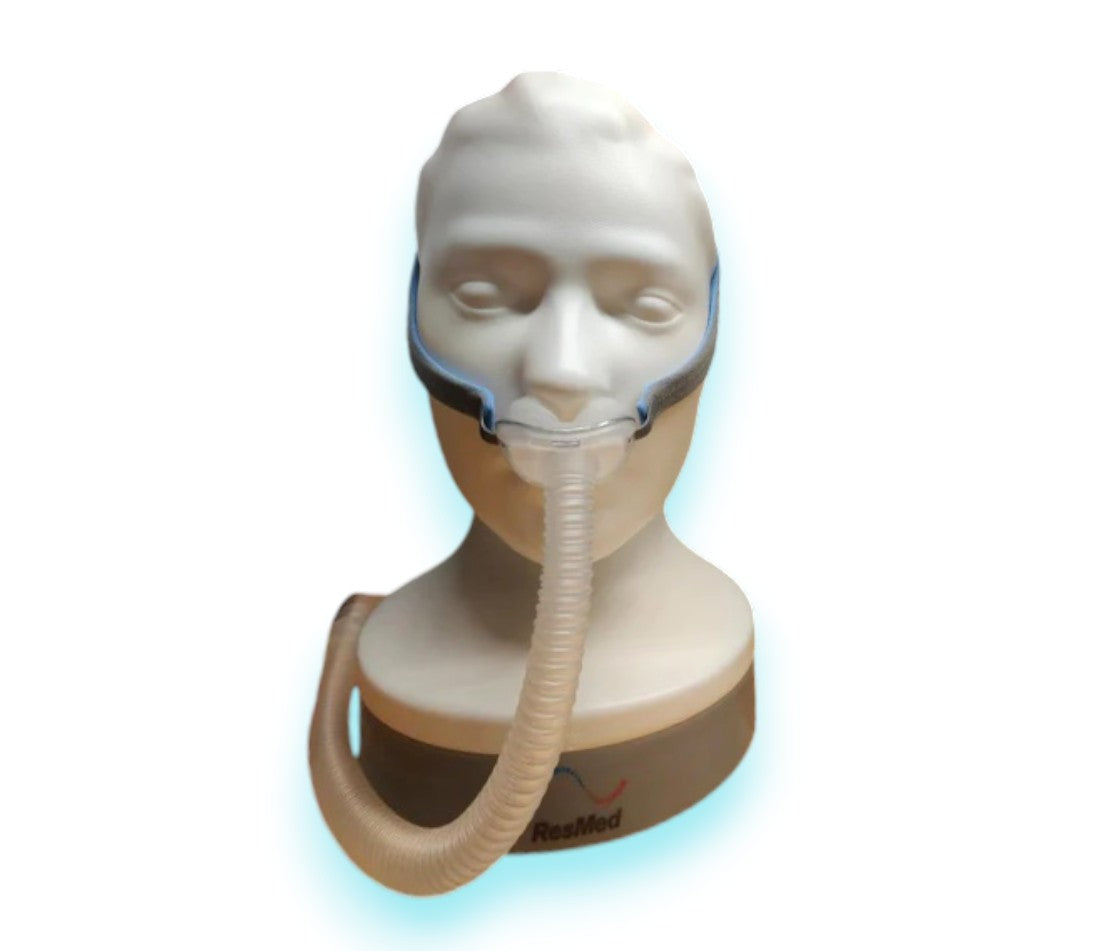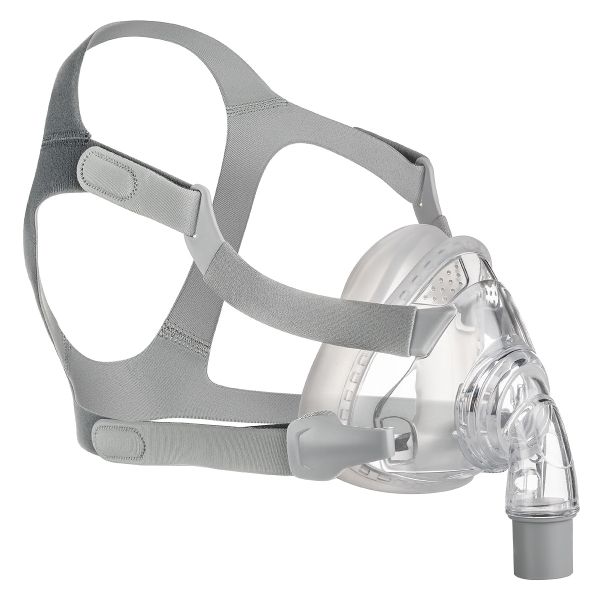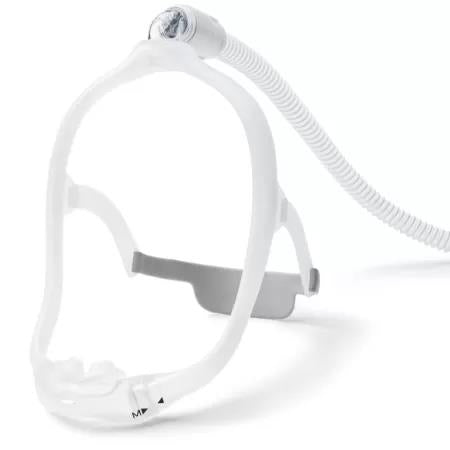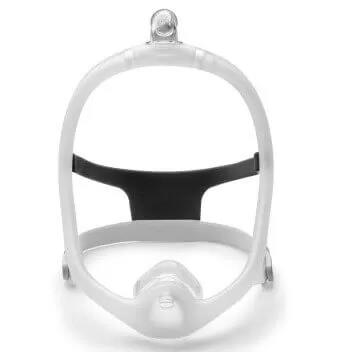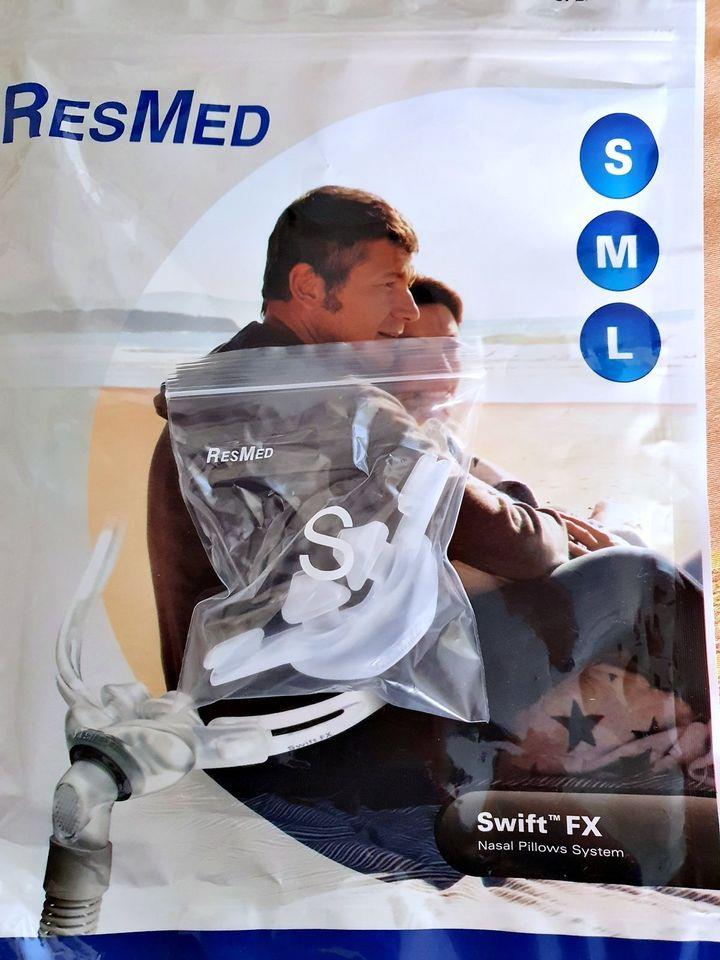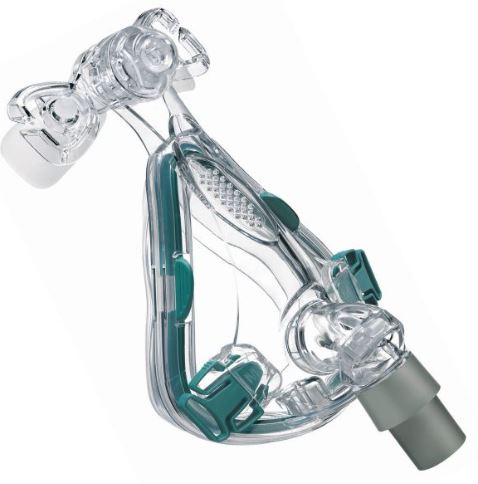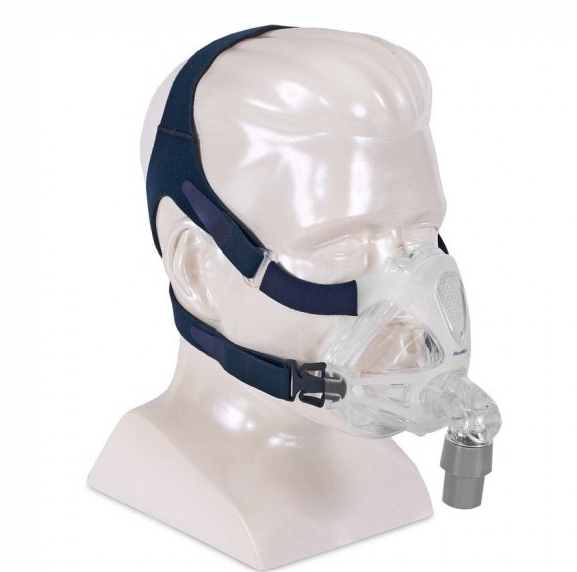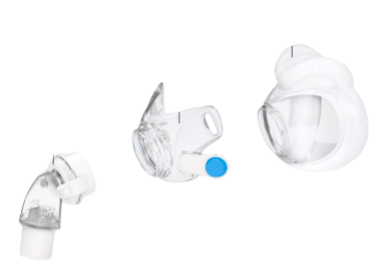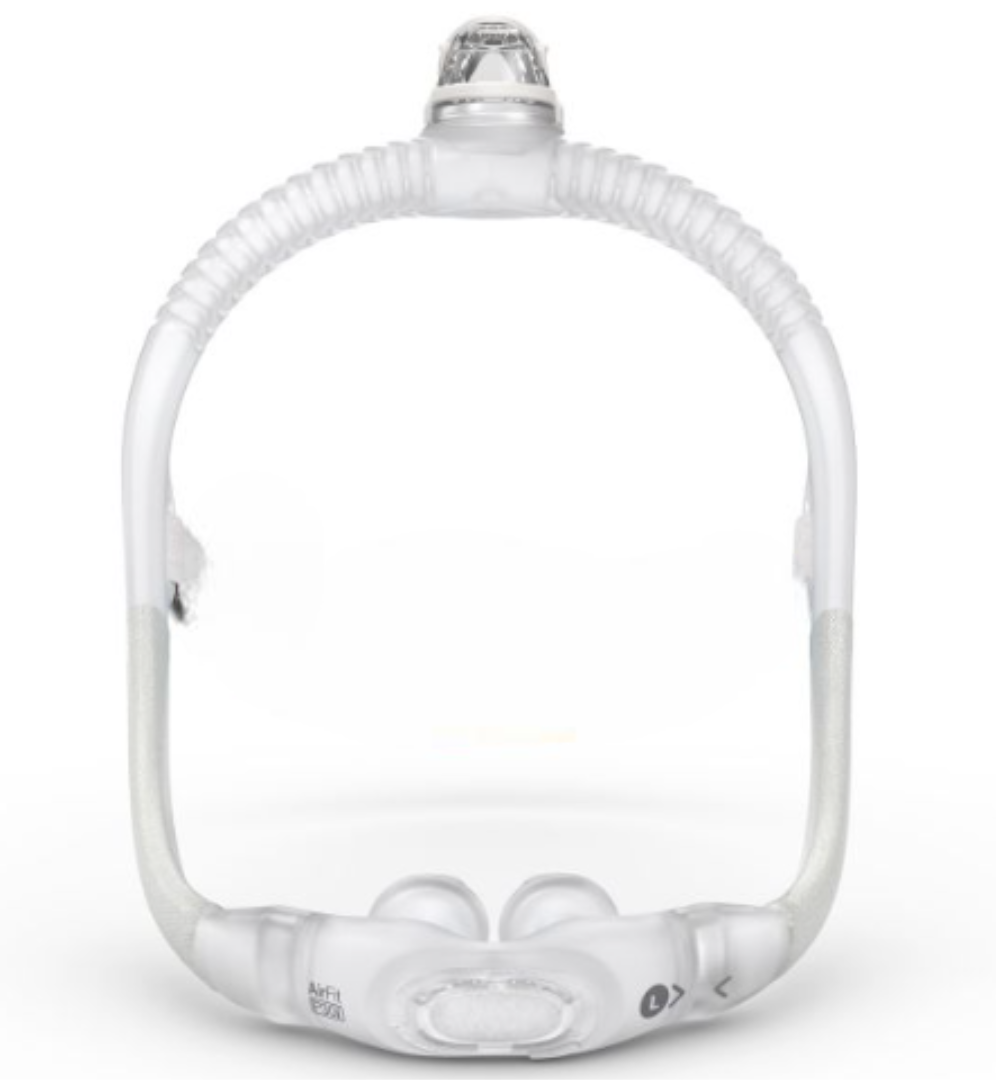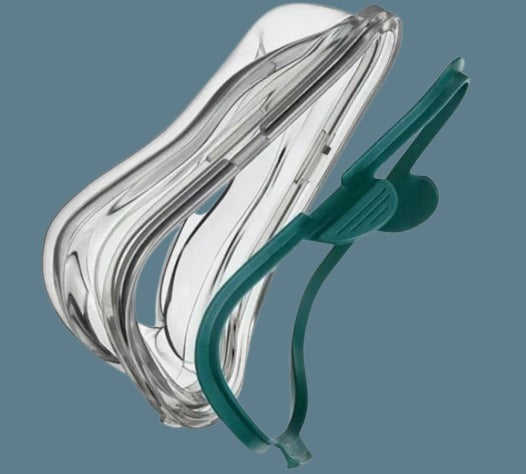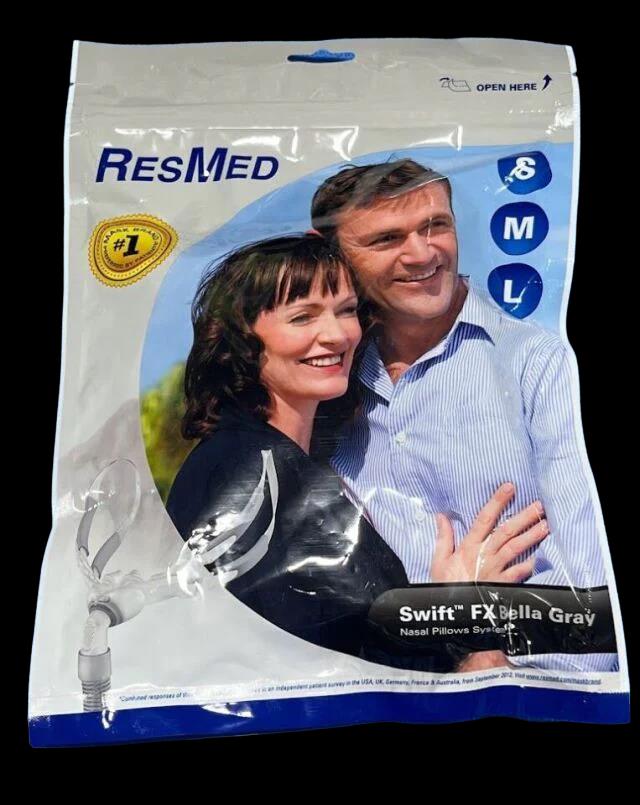Best CPAP Masks for Active Sleeper
CPAP Masks for Active Sleeper
Find the perfect CPAP mask designed for those who move around while they sleep. Our collection of CPAP masks for active sleepers is crafted to stay securely in place, providing uninterrupted therapy throughout the night. These masks offer a range of innovative features to ensure a snug, comfortable fit, even as you change positions. From adjustable straps to flexible materials,... Read More
CPAP Masks for Active Sleepers
Finding the best CPAP mask as an active sleeper can be a challenge. Active sleepers are those who tend to move around a lot during the night, frequently switching positions between side, back, and even stomach sleeping. For these sleepers, maintaining a secure and comfortable mask fit can be difficult, as masks may shift or leak with constant movement. However, with the right mask designed specifically for your sleep style, you can experience effective CPAP therapy without compromising comfort or performance.
Understanding the Needs of Active Sleepers
If you’re an active sleeper, the mask you choose must stay in place while accommodating your nightly movements. Masks that shift too much can cause air leaks, reduce the effectiveness of your CPAP therapy, and lead to discomfort or interruptions in sleep. Finding a mask with a secure fit, minimal contact, and flexibility is crucial to ensure a good night’s sleep, even if you move around frequently.
Key Considerations for Active Sleepers
Before diving into specific mask recommendations, it’s essential to consider a few key factors that active sleepers should keep in mind when choosing a CPAP mask:
- Mask Fit: The mask should fit securely without being overly tight, as tight masks can cause discomfort or pressure sores.
- Minimal Contact Design: A mask that makes minimal contact with your face, such as nasal pillows, is ideal for active sleepers as it is less likely to shift when you change positions.
- Flexibility: A flexible CPAP mask that can accommodate different sleeping positions is important for preventing leaks and ensuring a comfortable fit.
Best CPAP Masks for Active Sleepers: Nasal Masks vs. Full-Face Masks vs. Nasal Pillow Mask
There are several CPAP mask categories to choose from, each with its own pros and cons depending on your sleep style and therapy needs. For active sleepers, two types of masks generally work best: nasal masks and nasal pillow masks. Let’s take a look at the differences:
Nasal CPAP Masks
Nasal masks cover the nose and are a popular option for active sleepers. These masks offer a balance between minimal contact and a secure fit, making them ideal for those who move frequently during the night. With a smaller design compared to full-face masks, nasal masks tend to stay in place better for side sleepers and those who change positions.
- Pros: Provides a good seal for side sleepers, minimal contact with the face, more flexibility for different sleeping positions.
- Cons: Not suitable if you breathe through your mouth unless paired with a chinstrap to keep the mouth closed.
Nasal Pillow CPAP Masks
Nasal pillow masks are an excellent choice for active sleepers who prefer minimal contact. These masks feature small, cushioned pillows that rest at the entrance of the nostrils, allowing for an open field of vision and greater flexibility when you move during the night. Nasal pillow CPAP masks are particularly beneficial for people who experience claustrophobia or discomfort with bulkier masks.
- Pros: Extremely lightweight, minimal contact, great for side and stomach sleepers, less likely to cause irritation.
- Cons: May not be suitable for those with higher pressure settings or mouth breathers.
Full-Face CPAP Masks
For those who need a full-face mask, finding one that accommodates movement can be more challenging. Full-face masks cover both the nose and mouth, which can feel bulkier and may shift more easily with changes in position. However, there are still some options that can work well for active sleepers, particularly those who breathe through their mouths or require higher pressure settings.
- Pros: Ideal for mouth breathers or people with nasal congestion, provides a secure fit for those who need higher pressure.
- Cons: Bulkier, more prone to air leaks for side and stomach sleepers.
Top CPAP Masks for Active Sleepers
AirFit P10 Nasal Pillow Mask with Headgear
Key Features:
- Ultra-lightweight and minimal design for maximum comfort.
- Flexible nasal pillows provide a secure seal.
- QuietAir vent technology reduces noise.
- Elastic headgear for quick and easy fitting.
Benefits:
- Ideal for active sleepers due to its minimal contact with the face.
- Lightweight design allows for freedom of movement during sleep.
- Reduces air leaks, ensuring effective therapy even with position changes.
- Quiet operation allows for undisturbed sleep, even for bed partners.
ResMed N30i Nasal Mask with Headgear
Key Features:
- Top-of-head hose connection for 360-degree movement.
- Minimal-contact design with a soft, curved nasal cradle.
- QuietAir vent for silent operation.
- Comfortable, slip-on headgear with adjustable straps.
Benefits:
- Perfect for side and stomach sleepers as it offers freedom of movement.
- Minimal face contact reduces pressure points and skin irritation.
- Provides a secure, leak-free seal even with frequent movements.
- Quiet operation ensures uninterrupted sleep throughout the night.
Siesta Full Face Mask
Key Features:
- Lightweight, compact design with a soft silicone cushion.
- Quick-release headgear for easy removal.
- 360-degree swivel elbow for flexible hose movement.
- Adjustable headgear ensures a personalized fit.
Benefits:
- Ideal for active sleepers who prefer a full-face mask.
- Compact design allows for better mobility while preventing air leaks.
- Secure fit reduces the risk of shifting during movement.
- Easy to put on and take off, enhancing overall convenience and comfort.
Respironics DreamWisp Nasal Mask with Headgear
Key Features:
- Top-of-head hose connection for full range of motion.
- Minimal contact nasal design with an open field of vision.
- Soft silicone frame adapts to facial contours for comfort.
- Magnetic headgear clips for easy attachment and removal.
Benefits:
- Perfect for active sleepers due to its flexible design and minimal contact.
- Allows for easy movement without compromising the seal.
- Open field of vision makes it easier to read or watch TV before bed.
- Secure and comfortable, even for sleepers who move frequently.
ResMed Swift FX Bella Gray Nasal Pillow CPAP Mask
Key Features:
- Lightweight, minimal design with silicone nasal pillows.
- Unique "Bella" loop ear headgear eliminates the need for bulky straps.
- Soft and flexible nasal pillows ensure a comfortable seal.
- Quiet vent for peaceful sleep.
Benefits:
- Ideal for active sleepers who want a minimalist mask without headgear straps.
- Lightweight and easy to adjust, providing comfort during movement.
- Perfect for side and stomach sleepers who need a stable mask.
- Reduces irritation and red marks typically caused by traditional headgear.
DreamWear Silicone Nasal Pillow CPAP Mask
Key Features:
- Top-of-head hose connection allows for 360-degree freedom of movement.
- Soft silicone nasal pillows provide a secure, comfortable seal.
- Minimal contact design reduces facial pressure points.
- Open field of vision and flexible frame for easy movement.
Benefits:
- Great for active sleepers who shift positions frequently during the night.
- Soft and flexible design stays in place while maintaining a secure seal.
- Minimal contact design ensures comfort without compromising the therapy.
- Quiet operation and flexible movement enhance sleep quality for active sleepers.
Choosing the Right CPAP Mask Based on Your Sleep Position or Sleep Style
Your sleeping position plays a significant role in determining the best CPAP mask for your needs. Whether you’re a side sleeper, back sleeper, or stomach sleeper, finding a mask that works with your sleep style is essential for effective CPAP therapy journey.
Side Sleepers
Side sleepers often struggle with air leaks if the mask shifts as they turn from side to side. For these sleepers, a nasal mask or nasal pillow mask is typically the best choice because these designs offer a secure fit and minimal contact.
Best Mask for Side Sleepers:
- Swift FX Nasal Pillow CPAP Mask: Lightweight with minimal contact, this mask remains stable even as you change sides.
- ResMed AirFit N30i Nasal Mask: The top-of-head hose connection prevents tangling and makes it easy to sleep on your side.
Back Sleepers
Back sleepers have more flexibility in choosing a CPAP mask, as their sleeping position puts less pressure on the mask. Full-face masks and nasal masks are suitable for back sleepers, provided the mask fits well and doesn’t shift.
Best Mask for Back Sleepers:
- ResMed AirFit F20 Full Face CPAP Mask: Designed for comfort and stability, this mask works well for back sleepers who need a full-face option.
- DreamWear Nasal CPAP Mask: Its flexible frame and minimal-contact design make it an excellent choice for back sleepers.
Stomach Sleepers
Finding a CPAP mask for stomach sleepers can be tricky, as most masks may press uncomfortably against the face. For this sleep position, a nasal pillow CPAP mask is usually the best option due to its lightweight design and minimal contact points.
Best Mask for Stomach Sleepers:
- ResMed Swift FX Nasal Pillow Mask: The small, lightweight design makes it ideal for stomach sleepers who need flexibility and comfort.
- DreamWear Nasal Pillow Mask: This mask’s under-the-nose design and flexible tubing make it easy to sleep on your stomach without obstruction.
Tips for Choosing the Right CPAP Mask for Active Sleepers
Finding the perfect CPAP mask as an active sleeper can be tricky, but the right mask will ensure comfort and effective CPAP therapy. Here are some tips to help you choose the best CPAP mask for your sleep style:
Consider Your Sleeping Position
Your sleeping position plays a significant role in selecting the right mask. Different positions may put pressure on the mask, causing air leaks or discomfort:
- Side Sleepers: Choose a nasal mask or nasal pillow mask for minimal contact and better stability.
- Stomach Sleepers: Opt for a nasal pillow mask since it offers the least facial contact and won’t press against your face.
- Back Sleepers: You have more options, including full-face masks, since your position doesn’t typically disturb the mask fit.
Choose a Mask with Flexible Headgear
For active sleepers who move a lot during the night, headgear with adjustable straps is crucial. A mask with secure headgear helps keep it in place and prevents leaks when you change positions.
Opt for a Minimal Contact Design
Look for masks with minimal facial contact, such as nasal pillows or low-profile masks. These designs are less likely to shift or cause discomfort while you move during sleep.
Top-of-the-Head Hose Connection
Masks with a top-of-the-head hose connection allow for greater freedom of movement, preventing the hose from tangling or getting in your way during sleep. Test for Comfort and Cushioning Make sure the mask provides a comfortable fit with soft mask cushions (silicone, gel, or memory foam). Cushions help minimize pressure points and prevent irritation during sleep.
Check for Mask Stability
An unstable mask can lead to leaks and disrupt your therapy. Choose masks with a secure fit and stable frame that remain in place even as you change positions throughout the night.
Consult a CPAP Specialist
If you're unsure which mask suits your sleep style best, consult a CPAP specialist. They can help guide you through your options based on your movement patterns and comfort preferences. By considering these points you can find your perfect fit.
Why Choosing the Right CPAP Mask Is Necessary for Effective Sleep Apnea Treatment
Selecting the right CPAP mask is critical for ensuring successful treatment of sleep apnea. The mask is the primary interface between the CPAP machine and the user, and its comfort, fit, and design directly impact the effectiveness of your CPAP therapy. Here are key reasons why choosing the right CPAP mask is essential:
Ensures Proper Air Pressure Delivery
The mask you choose must create an airtight seal to ensure that the CPAP machine delivers the prescribed air pressure needed to keep your airways open. A poor-fitting mask can lead to air leaks, reducing the effectiveness of the treatment and leading to interruptions in therapy. For active sleepers, a well-fitting mask that stays in place during movement is crucial.
Prevents Discomfort and Skin Irritation
A comfortable CPAP mask is necessary to avoid discomfort, pressure sores, or skin irritation that could make it difficult to adhere to the therapy. Masks that are too tight or poorly designed can cause discomfort, leading to less compliance with treatment. By selecting a mask that fits well and feels comfortable, you reduce the risk of developing issues like skin irritation, red marks, or facial soreness.
Promotes Continuous Therapy
Using a mask that aligns with your sleeping position and movement patterns will help prevent interruptions in therapy. If the mask shifts, leaks, or causes discomfort, it may disrupt sleep and reduce the overall effectiveness of your sleep apnea treatment. An optimal mask encourages consistent use throughout the night, even for active sleepers.
Improves Sleep Quality
Choosing the right CPAP mask is essential for improving sleep quality. A well-fitting mask provides effective therapy while ensuring comfort, allowing you to experience deeper, more restful sleep without disturbances. This is especially important for people with obstructive sleep apnea, as uninterrupted therapy is crucial for managing symptoms and preventing daytime fatigue.
Increases Therapy Compliance
One of the biggest challenges for CPAP users is adhering to their treatment. A comfortable and secure mask makes it easier to wear the device for the recommended duration each night, which increases compliance and enhances the long-term success of the therapy.
Tailored to Individual Needs
Every individual has different needs based on their breathing patterns, sleep position, facial structure, and preferences. Whether you need a nasal mask, nasal pillow mask, or full-face mask, choosing the right one ensures that your therapy is personalized to suit your unique requirements, leading to better overall outcomes.
FAQs
Our committed team is available to support you through every step of your treatment journey.


